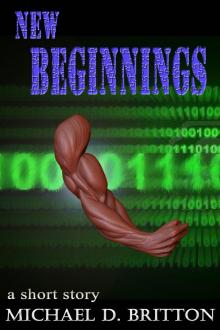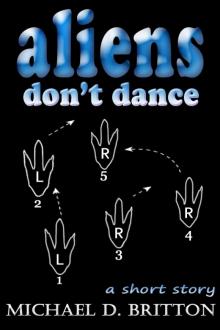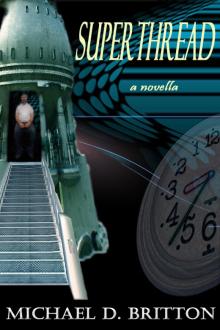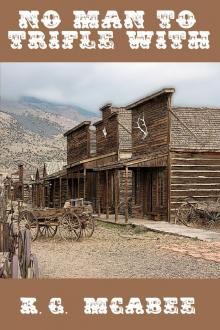- Home
- Michael D. Britton
The Only Page 2
The Only Read online
Page 2
Since his wife’s untimely death, Aedlem had devoted his life to his work. But even Aedlem’s associates at the Institute of Light were likewise lost for an explanation – so many questions about the Ghosts’ vanishing and no answers. Nobody knew what had happened, and it seemed that time was slowly erasing even the memory of the Days of Light. Thirty-two years was a generation, and the new generation had moved on from the past, discarding the Days of Light.
#
Aedlem awoke from a surprisingly deep sleep. He had no idea how long he’d slept, until, after a light breakfast Jerin led him up the passageway and opened the wooden doorway into the forest. Morning burst through, temporarily blinding Aedlem. He stepped out, and once his eyes adjusted, he saw that the door was a moss-covered panel set into a huge rock. When Jerin closed the door, the panel formed a perfect seal, and was completely disguised. The surrounding trees grew close together, with thick undergrowth covering the ground in all directions. Patches of mist hovered above the forest floor, waiting to be evaporated by the rising suns. The air smelled rich and moist, with no hint of the battle smoke that had covered the land the night before.
“Come,” said Jerin, who had returned to his disguised image of a normal man.
The two walked back out of the wood toward the country road they’d followed out of the city the previous day. Aedlem, still feeling a little overwhelmed, found his mind was going over all the ways he was inadequate for this calling as protégé to a god.
“I sense your concern,” said Jerin. “You needn’t worry. The work ahead is arduous, but you are up to the task.”
“Thank you, Jerin,” said Aedlem. “I will try my very best.” He pondered silently for a few moments. “I also fear my people are not up to the task – we have become a weak and faithless people. In only a generation we have fallen into a state of moral decay. My work with the Institute of Light was fruitless. Even my own son – ” he choked on his words.
“I know,” said Jerin. “Selnem does not trust in us, we who are the friends of your world. But he will. In fact, he is the first of the lost that we shall find.”
Aedlem’s face lit up. “We are going to see my son?”
“That is our first stop,” said Jerin.
#
The journey to the north took two days. As Jerin and Aedlem approached the capital of Panlithia Major, a sight of horror met their eyes. The city, like so many others across the world, had been decimated.
“If you had not already told me that Selnem lives, I would be sure he were dead,” said Aedlem. “He worked in the government buildings, which used to be there,” he said, pointing to a blackened, still-smoldering crater in the near distance.
“He has taken refuge in the New Way Library,” said Jerin.
“Ah yes,” said Aedlem, “that used to be an Institute of Light building.”
The two found their way past piles of rubble, with Jerin often stopping to provide aid to fallen citizens. Aedlem was impressed by Jerin’s compassion and seemingly endless energy and desire to provide individual service to his people. After a while, they reached the New Way Library and tracked down Selnem.
“Father, you live!” said Selnem, pleased to see Aedlem, despite the distance that had grown between them. “I heard that most of the cities in Panlithia Minor were destroyed. I feared for you.”
“And I, you,” said Aedlem, embracing his son in a brief, tight hug. He drew back and took a look at the man who resembled a younger version of himself. “This is Jerin. He helped me escape the destruction and led me here to you.”
“Greetings, Jerin,” said Selnem, offering Jerin his hand in the traditional Panlithian way, palm down.
“Greetings,” replied Jerin, gently placing the back of his hand on Selnem’s, palm up.
“How did you know I was here?” asked Selnem.
“I know many things, friend,” said Jerin, choosing to remain mysterious for now. “Come, I have a place we can go, where we can eat and rest.”
Aedlem could tell from the flicker of concern that crossed his son’s features that he was suspicious of Jerin, but the three left together and headed back out of the city.
As they turned to go down the road that led toward the northern wilderness, a strange sound broke forth from the sky, seeming to come from all directions at once. The three looked up, trying to determine the source. It sounded like a warbling whistle with a cold, metallic echo. It grew louder and louder until it was almost deafening.
“Come, quickly,” said Jerin. He led the way down the road at a much faster pace than before. Selnem had no trouble keeping up, but his aging father started to breathe heavily after about a half a pasture.
The shadows under the trees that lined the road disappeared as the sky suddenly grew dim. Without slowing his pace, Aedlem looked up and saw scores of dark whirlpool clouds high above, swirling and churning and growing in size. The whirlpools got so large they eventually overlapped and coalesced, forming one dark billowing blanket across the midday sky.
With his eyes fixated on the gloom-filled heavens, Aedlem lost his footing and tumbled to the dusty ground, skinning his knees and both of his palms. Jerin heard him fall and turned back to help him, along with Selnem.
“What is happening?” asked Selnem, grasping Aedlem’s bleeding, outstretched hand and lifting him to his feet.
“They have arrived,” answered Jerin.
“Who?” asked Selnem.
Aedlem knew the answer. “The Kkàc.”
#
Knowing there was no way they’d reach Jerin’s shelter without detection, Jerin, Aedlem and Selnem left the road and hid among some thick trees.
“Who are the Kkàc?” asked Selnem.
“The ones who have destroyed our cities,” said Aedlem. “And now they are coming to enslave us.”
“I have heard nothing about this from my contacts in the Council of Protection,” said Selnem. “There have been no alerts among government bodies. How do you know so much?”
Aedlem looked in Jerin’s eyes, as if seeking permission to blow his cover. Jerin said nothing, and it was clear he was not ready to reveal himself to Selnem. Aedlem had little choice but to tell the truth, albeit obliquely.
“I have received a vision. I have communicated with the Aliens of the Sky.”
Selnem’s expression turned quickly to that of someone who had just unexpectedly tasted something very sour.
“Father,” he said, rolling his eyes, “this is no time for your fantasies of Ghosts. We need to establish some facts. We need to contact Protection and initiate a coordinated response to whoever is attacking us.”
“Spoken like a true New Way government official,” muttered Aedlem, saddened and angered by his son’s sharp dismissal of his beliefs.
“The Council of Protection is gone,” said Jerin, simultaneously breaking the personal tension and adding to the trauma of the situation.
“What do you mean, gone? How do you know?” asked Selnem.
“The Protection Headquarters building in Panlithia Major and the one in Panlithia Minor, as well as the subsidiary stations in the islands, have all been destroyed with no survivors. All the roving platoons have been decimated. I know because I have seen them,” explained Jerin, leaving out the fact that he had seen them by means beyond mere Panlithian sight.
“All of them?” asked Selnem, staring blankly in shock, and not really expecting an answer.
“Many good people are dead, Selnem. It will now fall to the people to defend themselves,” said Jerin. “We must organize ourselves, before it is too late.”
Aedlem peered up through the trees. In the center of each of the brooding black swirls in the sky a small light appeared. Slowly, the light took shape. Each was a huge flying vessel that descended upon the ruins of Panlithia. As they came down, they grew to reveal their true size. Each spanned three pastures and was as tall as a government office. Flashes of bright green light beamed fr
om the ships toward the ground in all directions, at seemingly random intervals. Aedlem tore himself away to see that his two companions were also staring up through the trees at the menacing invaders.
“What are those green lights?” asked Aedlem in a hushed tone.
“They are sending down ground troops and equipment,” whispered Jerin. “Each flash is a regiment of Kkàc soldiers.”
“Again, I would like to know how you know these things,” demanded Selnem. “Are you – ” he stopped himself, pondering the possibilities. He stared into Jerin’s inscrutable face. Then he went ahead and said it. “Are you a member of the Raath Kanshik?”
The Raath Kanshik was the top secret intelligence wing of the Panlithian Council of Protection. Its mysterious spies were the subject of many fanciful tales – though nobody really knew anything about them, other than the fact that the anonymous heroes of the Raath were sometimes called upon from time to time to extricate Panlithia from the most complicated struggles. Raath agents were rumored to be masters of disguise, with incredible martial skills and a ruthless sense of justice. Despite having official designation as part of the Panlithian government, the Raath were also said to be nearly autonomous and unaccountable for their often questionable methods.
“Why don’t we just concentrate on finding a safe place to hide?” interrupted Aedlem, trying to deflect his son’s prodding of Jerin. He understood Jerin wanted to conceal his true nature for now, even if he did not understand why.
“Aedlem is right,” said Jerin. “We cannot stay here.”
Aedlem led them out of the trees, but not toward the road. They went deeper into the countryside, moving at a brisk pace and only pausing to rest where there was sufficient cover. By nightfall they came to the foothills of the Iquarrah Mountains. They entered a canyon and followed a shadowy trail for about a pasture and a half.
“Here,” said Jerin. “Behind these shrubs there is a cave. We can stay the night there.”
As they entered the dark hollow, they could hear water trickling. “There is an underground spring,” said Jerin. “We will have water, but no food, unfortunately.”
“As long as there is a place to rest,” said Aedlem.
#
That night, while Selnem slept, Aedlem lay awake restless, his mind churning. He moved to where Jerin sat and whispered to him.
“Tell me, please. Why do you not reveal your true identity to my son?”
“He does not believe I exist,” said Jerin plainly. “Showing myself to his unbelieving eyes, as I really am, will not convince him. He must accept, as you do, before he can comprehend reality. One who is force-fed only chokes, and resents the one providing the food.”
“I see,” said Aedlem.
“Yes, I know you do,” said Jerin. “And Selnem will see, too, perhaps. Much of that will depend on you.”
#
In the false dawn, the three made their way further up the canyon to gain a view of the capital city. The urban landscape in the distance was nearly unrecognizable. During the night, the alien raiders had taken the entire city hostage. Already, the massive Kkàc autocranes had materialized among the city’s ruins and built sprawling detention facilities. The Kkàc regiments had forcefully rounded up the Panlithian population, deposited them in their giant cages, and begun processing them as slaves.
“They are nothing if not efficient,” said Jerin, deep sadness on his face. “The same thing is going on across the globe, at all the other cities.”
“What can we do?” asked Selnem desperately.
“The majority of the population,” Jerin said, “have already been captured. But the few who still live in the countryside areas will take a little longer to be apprehended. We should try to make contact with them and form a resistance group.”
“But how can we even resist?” asked Aedlem. “Surely they will capture us also.”
“Yes, they will,” said Jerin. “But if we are already organized before they get us, then we will be in a much stronger position. All those people down there were taken by surprise. They had no time to prepare, and the enemy uses that chaos to their benefit. But if we have already established an organization to fight them, we will be able to work from the inside to subvert and overcome them.”
Jerin spoke with such a calm tone and peaceful demeanor, he made it hard to be refuted. His quiet leadership brought agreement from the other two. Besides, neither of them had any better ideas.
“That makes sense,” said Aedlem.
“How do we start?” asked Selnem.
“There are some small farms to the north. Let us go there and unite with them,” said Jerin.
#
Over the next four days, the three men traveled around the fertile valleys to the north of the city, meeting with the few people they could find, gathering followers, forging a small army, and staying one step ahead of the Kkàc regiments that were systematically combing the countryside for stray Panlithians to enslave.
Jerin laid out his plans for when they were inevitably captured. The key was to not resist capture, so they could remain alive. Once within the slavery compounds, they would likely be separated, but their agenda would still be set in motion. The object was not to escape immediately, but to rise up en masse in a coordinated effort and overthrow their oppressors. Each resistance member would recruit those with whom they had contact, forming a patchwork of cells. Once enough of the people were organized, they would stage their synchronized rebellion.
Jerin established code words and signals that they could all use as their private language once inside the prisons. Each resistor was instructed to teach this to their recruits. It was a crash course, but everyone understood what was at stake and committed the plans and the code language to memory.
On the fifth morning, the large group split up so they would not appear to be organized when captured.
On the sixth day, Jerin, Aedlem and Selnem were surrounded by Kkàc troops and surrendered peacefully.
#
The first week was the worst.
Panlithians were herded like livestock through a series of processing stations inside the detention facility. Heads were shorn, laser tattoos administered for tracking, personal belongings confiscated and destroyed, and individuals sent off to different work assignments.
People were separated seemingly randomly – some families left intact, others having one or two members stripped away, still others completely fragmented. It was hard to determine the criteria their captors were using for dividing up the people. It did not seem to be based on age, gender, family association, or any other obvious characteristic. Somehow, Jerin, Aedlem and Selnem were assigned to the same work detail. There was no telling how long it would last, but for now, they remained together.
They hardly had any chance to communicate the first week, as the guards were always nearby, and the labor long and intensive. This particular work detail consisted of manual mineral extraction. All day long they stood before a conveyor belt, separating rocks of different composition and placing the various types into different bins. Given no protective gear, their hands became raw at first, and eventually callused.
One night, an exhausted Selnem whispered to Jerin after the lights went out, “You would think that with their technical capabilities – the ability to build dozens of prisons overnight – that they could automate the kind of work we are doing.”
Jerin responded in his usual serene tone, “Why build machines to do what we can do for them? Their expertise is in exploitation of others, not self-improvement. Goodnight.”
After a few minutes Selnem turned to Aedlem. “Father, how are your hands?”
Aedlem had suffered the worst, since his section of the conveyer belt contained the hardest, sharpest mineral selection. “I will be fine, son. Thank you.”
“Father,” whispered Selnem, “I am concerned we will be here, doing this work, until we die a premature death from overwork.”
“You must trust in Jerin,” said Aedlem. “His wisdom and leadership will see us through this dark hour.”
“Why do you believe in him so much? He may be a Raath agent, but he’s just a man, like us. In the end, he is as helpless as we are.”
“Do you remember when your mother used to lay on her back, close her eyes, and pray to the Aliens of the Sky?”
“Father, please, don’t start with that stuff again.”
“Do you remember?”
Selnem sighed. “Yes, I remember. I also remember that it didn’t do her much good, since she is dead now. And look at us – look at what has become of our world.”
Aedlem considered that perhaps his wife was better off now after all. But he continued with his point. “Your mother had faith. She knew things that could not be known by simply seeing, hearing, or touching. Her understanding – her perception – transcended the so-called knowledge of the merely mortal. She knew that science does not hold all the answers.”
Selnem couldn’t help but guffaw quietly at what he considered such an absurd suggestion. Aedlem frowned in the darkness and continued whispering to his son.
“Believe it or not, there are things that cannot be explained by conventional means. You’re too young to remember, but our world was once very different.”
“Yes, I know,” said Selnem, his tone indicating fatigue with a tired old subject of debate. “Once upon a time there were lights in the sky and they talked to you and helped you. Father, nobody believes that stuff anymore. Our people have evolved beyond such primitive superstitions. And calling upon your imagined allies will do nothing to get us out of this predicament. We must rely on ourselves. At least Jerin has that part right – he knows that gods are not going to swoop down from the sky and save us.”
Aedlem smiled at the irony. “What if I were to convince you otherwise?”
“I’ll believe it when I see it,” said Selnem.
“No, I don’t think you would,” said Aedlem. “I truly think that if you saw a Ghost you would not believe it. You would try to explain it away somehow.”
“Okay, you’re probably right,” Selnem admitted.

 Turn the Page
Turn the Page Checkmate
Checkmate A Slave to Race
A Slave to Race The Only
The Only Convergence
Convergence Red Death
Red Death New Beginnings
New Beginnings Liberation
Liberation Old Wounds
Old Wounds Aliens Don't Dance
Aliens Don't Dance Tag-Alongs
Tag-Alongs Broker
Broker Pause
Pause Predict THIS
Predict THIS AaBack's Grimm: Dark Fantasy Fairy Tale #2 Friends Reunited: The Janus Beast, The Rose Beauty, And The Cursed Duckling
AaBack's Grimm: Dark Fantasy Fairy Tale #2 Friends Reunited: The Janus Beast, The Rose Beauty, And The Cursed Duckling Unsettling Things & Other Stories
Unsettling Things & Other Stories Ask Grench
Ask Grench Strings
Strings Going to the Dogs
Going to the Dogs Switch
Switch Statute Forty-Nine
Statute Forty-Nine Brain Storm
Brain Storm Royal Flush
Royal Flush Time and Again: A Collection of Crazy Chronology
Time and Again: A Collection of Crazy Chronology Edge of Human
Edge of Human A Sense of Souls
A Sense of Souls Decisions, Decisions
Decisions, Decisions Dream Soldiers
Dream Soldiers Spies: 7 Short Stories
Spies: 7 Short Stories Prowler: Three Haunting Tales
Prowler: Three Haunting Tales The Release
The Release Lunar Tales - an anthology
Lunar Tales - an anthology Surge
Surge Sole Survivarrrgh
Sole Survivarrrgh Remember
Remember Superthread
Superthread Deceive the Paradox
Deceive the Paradox Project: Dreamer
Project: Dreamer No Man to Trifle With
No Man to Trifle With Diaspora
Diaspora Quartet for Three
Quartet for Three The File
The File These Dark Electrons
These Dark Electrons Honored: 7 Honorable Mention Stories from the Writers of the Future Contest
Honored: 7 Honorable Mention Stories from the Writers of the Future Contest Balls
Balls The Final Testament
The Final Testament The Exile
The Exile OtherPlace
OtherPlace